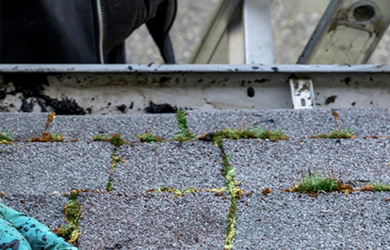Your homeowners insurance policy covers some roof damage but not all of it. There are certain stipulations that keep homeowners from utilizing their insurance policies for payouts that can help alleviate expenses. Learn what your policy may or may not cover, and what you can do to keep your roof protected.
Be Mindful Of Roof Exclusions In Homeowners Insurance
Your roof covers you and your family, but does your homeowners insurance cover your roof? Your insurance policy may cover roof damage, but it depends on what caused the damage.
Homeowners insurance policies may have roof exclusions, which essentially states that your provider is not obligated to pay for damages to the roof caused by wind, rain, or hail.
The roof is one of the most important aspects of the home, in addition to the foundation. Many homeowners may be confident in the integrity of their insurance and all that it covers. However, roof exclusions are too often overlooked and could lead to substantial out-of-pocket expenses if you need a repair, or worse, a replacement, and it isn’t covered by your insurance.
Will Insurance Cover An Old Roof?
If your roof is 20 years old, some insurance providers see this as a high-risk factor, and they could deny you coverage. That’s because after 20 years, the membrane has a substantial amount of wear and tear. At that point, there’s most likely damage beneath the surface, such as moisture build-up, which causes severe deterioration. For this reason, some providers can also refuse to renew existing homeowners policies on houses with roofs that have gone over their life expectancy.
Fortunately, if an older roof passes inspection, insurance providers are more lenient. That’s why prioritizing routine roof inspections is vital after the first 10 years of initial installation. This helps your roof maintain its strength and integrity and offers proof of stability for your insurance company. Keep in mind that if the inspection is failed the policy will not be renewed unless you get a roof replacement, which can cost over $10,000.
What Kind Of Roof Damage Is Covered By Insurance?
Dwelling coverage, also known as dwelling insurance, is the part of your insurance that helps pay for rebuilding or repair of the physical structure of your home if it sustains damage from a covered hazard. Dwelling insurance covers roof damage from fires, lightning strikes, and falling objects. These few hazards or perils covered by most standard homeowners insurance policies are specified in detail on your homeowner’s insurance policy. Reading and understanding it beforehand keeps you informed and aware of what to expect before you must file a claim for roof damage.
Understand Best Practices Of Homeowners Insurance
Home insurance policies include coverage limitations for roofs, but taking the initiative to thoroughly examine an existing or proposed policy can save you a lot of stress and frustration. Industry professionals also recommend homeowners get a qualified roofing contractor to inspect their roof and provide a written report that verifies its condition before the policy is finalized. That way, if wind or hail strikes your house, you can give the report to the insurance agency, confirming there was no pre-existing damage. Lastly, requesting a cost estimate for roof replacements helps you decide if the cost of a new roof installation outweighs the risk of being denied homeowners insurance.
Reliable Roof Inspections
Implementing routine roof inspections is the best choice to protect your home and your family. Stone Creek Roofing is here to provide you with practical solutions, whether your roof is old or new. We help you work with your insurance provider to decide on the most logical decision that meets your needs and eliminates your concerns. At Stone Creek Roofing, we pride ourselves on our extensive industry knowledge and our consideration and flexibility for each of our customers. With our free consultations via the web or in person, we can pinpoint the root cause of your roof issues and mobilize an efficient plan of action. Give us a call today.


